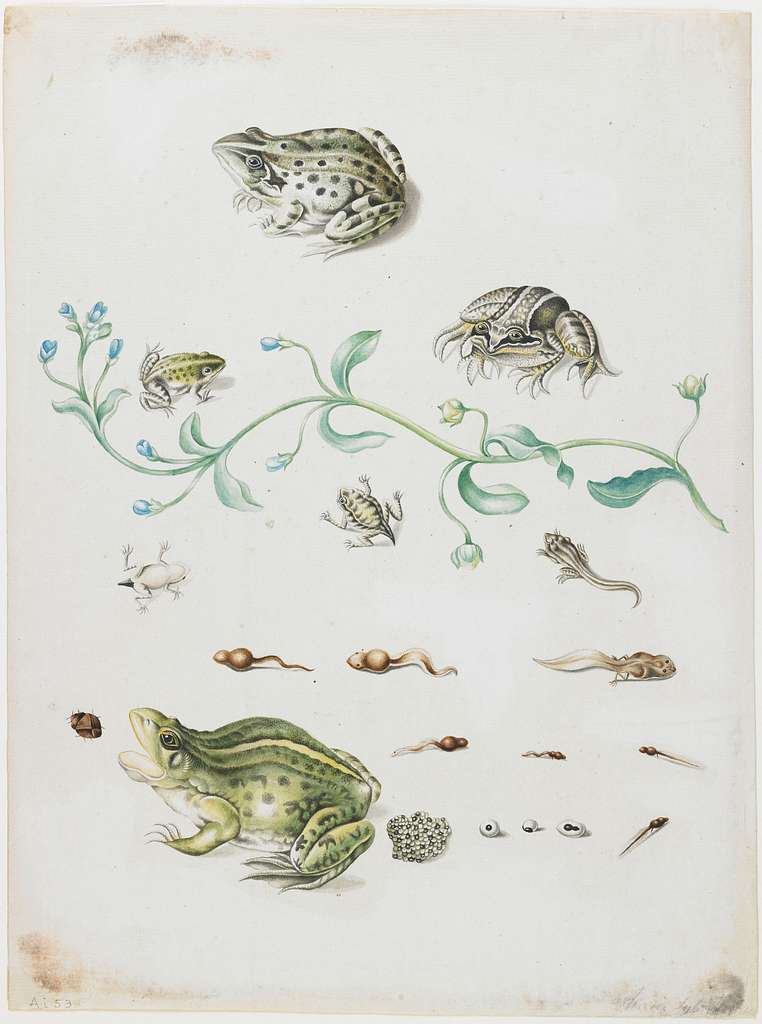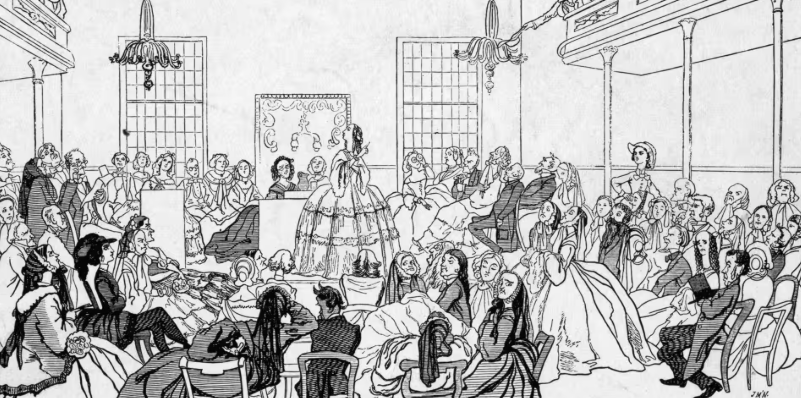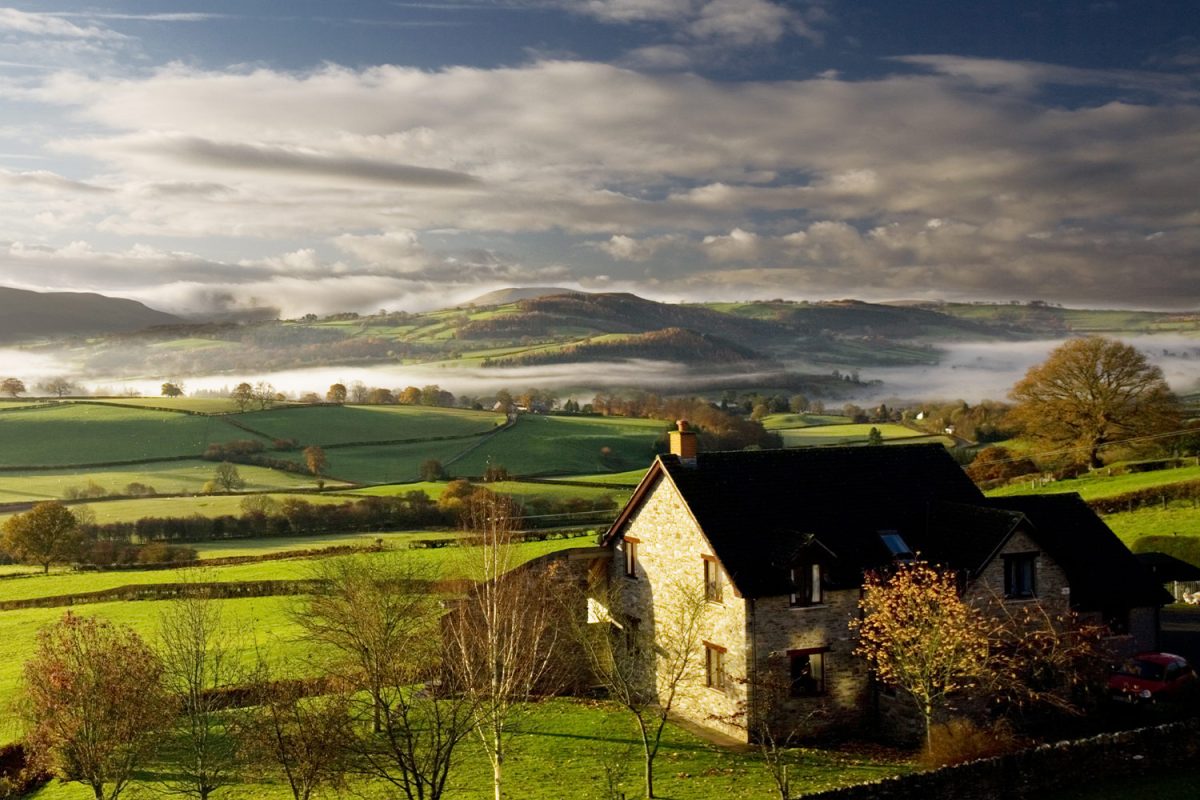From high above, you would look down and see an expanse of light brown marked by tiny indentations. Like a divine sheet of sandpaper as far as your eye or gold spyglass can see. As you drift downwards, the horizon retreats, and the lines and dots become vast mountains and valleys. Mannequin of a world. A beige canvas waiting for nature, people, cities, anything, to be painted onto it. Mountains get taller, valleys wider, splotches of color observable when squinting. Black? Brown? Altitude too high to discern.
Coasting down, eventually you would notice these mountains and valleys are not normal mountains and valleys. They are like great rice terraces: sporting some all-or-nothing conviction where altitude only shoots up and down 10 feet at a time. For ground, you make out the tessellation of wooden boards fitting into one another. You see indiscriminate bands of color on the sides of cliffs and chasms, stratified into rows.
You wouldn’t be far from touching down when you realize—they’re books. All the mountains, cliffs, ravines—they’re bookshelves, the different levels that form a world-spanning library. You imagine yourself landing where you now stand, a pass between two steep peaks. You look down from the dark yellow sky like some traveler on a dock, looking at the boat you just came off, and turn forward to continue your trudge. Its emptiness makes you feel colder than it is. The mesh of your chainmail. The light spring of your sword in its holster. The bounce of your rucksack. They are what heralds each step, the subtle reminder that reality marches on, stabilizing your position in the moment.
To your sides, great spires of books messily configure to resemble a clunky alpine range. The journey alternates between walking flat expanses and moving higher or lower via ladders that dot the landscape. Walk, climb, repeat. You see ladders knocked over in a world with no wind. On a mountainside to your right, you notice a gray protrusion. You yank the spyglass out of your rucksack, magnify–it’s what you’re looking for.
The stone portico you approach is an entryway. You move past the columns, under the roof, and into a tunnel that bores straight forward. On your left and right are lecterns, one after another, as far as you can see. Wooden and unadorned, they seem out of place among the ornate patterns carved onto the hall’s stony floor and walls. The art is of plants, animals, cities, boats, people. Some patches look normal, some look uncanny, but none of it feels implausible. It’s always like this. Each lectern has a closed book placed on it. An eerie glow from it all. You roam down the corridor for some time.
You reach the cutoff. Past here, lecterns become empty. As if whoever harnessed this place disappeared overnight. The moment marked by the shift from one book there to no book here—It’s always like this. You open your rucksack and pull out a yellow book you plucked off some shelf a couple hours ago, opening it halfway through.
The pages are covered in elaborate glyphs, a calligraphy of swinging lines and brief marks that deftly align and intersect. When you first saw them, you thought they were letters. Then hieroglyphics. Now you realize they are coordinates. Every dot, every line, curve, and criss-cross denotes some location, marks off some point on each of the ten thousand lines that comprise the axes of everything, barrelling forward in a singular infinitesimal present.
This world is the repository of every world. Universe-in-abstract. Outsourced working memory for parallel, permanent processing. We cannot comprehend it, by accepting that we are able to use it. Means by which the fundamental structure becomes the dirt from which we flower. Means by which the ocean contains the waves we sail.
Without shutting it or letting go, you place the book onto the lectern. A turquoise glow surrounds you. The color is always different. Hands distorting, stretching, oscillating, like the rise and fall of mountains and valleys from millions of worlds. Everything you see warps and transforms into an aquamarine haze. Shades flow into and out of one another in spirals and loops. Your hands are gone. For a moment, only your thinking confirms that you exist. The spirals and loops appear to straighten out, like strings pulled from both sides, and a new world falls into place.
This is your pursuit: to explore. Hands on the book, now closed. Another lectern in another place. You cannot shake the feeling that your body has been annihilated and remolded, like new leaves on the old branches. You look up at glistening stars layered over a pitch black sky, illuminating pink sand dunes that roll up and down into the distance. Thin monochrome cacti stretch tens of feet into the sky. You take a step forward.






